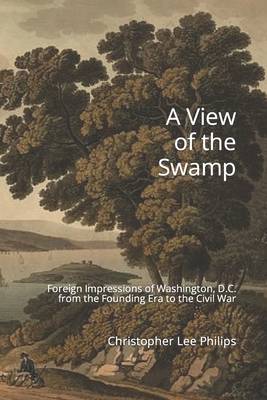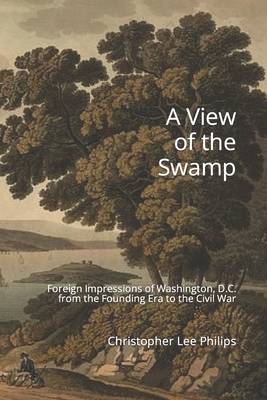
- Retrait gratuit dans votre magasin Club
- 7.000.000 titres dans notre catalogue
- Payer en toute sécurité
- Toujours un magasin près de chez vous
- Retrait gratuit dans votre magasin Club
- 7.000.000 titres dans notre catalogue
- Payer en toute sécurité
- Toujours un magasin près de chez vous
A View of the Swamp
Foreign Impressions of Washington, D.C. from the Founding Era to the Civil War
Isaac Weld, John Harriott, Auguste Levasseur
Livre broché | Anglais
26,45 €
+ 52 points
Description
A View of the Swamp: Foreign Impressions of Washington, D.C. from the Founding Era to the Civil War is an anthology of writings by foreign travelers who visited Washington, D.C. during its formative period. A planned city, Washington, D.C. would eventually evolve from a French engineer's vision, expressed "wholly on paper," to become a major metropolis. But it would take time, and along the way, there was a government to run. First impressions were often critical, especially among the British, who had recently lost their American colonies to independence at the hands of a brilliant generation of upstart revolutionaries. Some visitors opined that the city would never really amount to anything. "It can never become a town of any importance," wrote the Irish traveler Isaac Weld Jr. in 1795. The noted travel writer and acerbic English wit Frances Trollope was quick to remind her readers in 1832 that "it has been laughed at by foreigners." In the early 1860s, a generation after his mother's visit, the English novelist Anthony Trollope reflected that during the War of 1812, "we burnt it." True, the British had burned the capital, but the Americans rebuilt it, even as some suggested it should be moved to another location. These early travelers met with major challenges. Roads were poor to non-existent, comfortable hotels were few, and fine dining, where available, came at a premium. Some visitors were simply tourists. Others were scouts for investors or investors themselves. There were abolitionists, diplomats, feminists, members of the military and probably a few spies. Viewing a session of Congress was a mandatory accomplishment for many, who would consider their visit incomplete without observing the American political process. Whatever their motivation, these intrepid visitors took great pains to venture to Washington, D.C., witnessed the growth and development of the new capital city, and lived to tell about it.
Spécifications
Parties prenantes
- Auteur(s) :
- Editeur:
Contenu
- Nombre de pages :
- 466
- Langue:
- Anglais
Caractéristiques
- EAN:
- 9781096640714
- Date de parution :
- 19-06-20
- Format:
- Livre broché
- Format numérique:
- Trade paperback (VS)
- Dimensions :
- 152 mm x 229 mm
- Poids :
- 616 g







